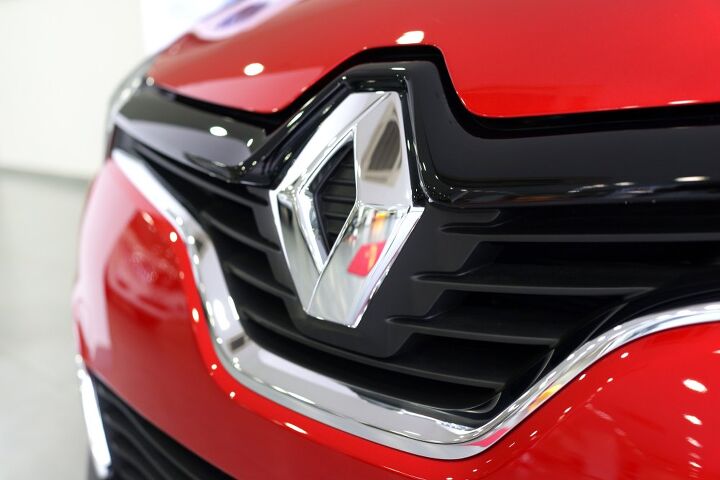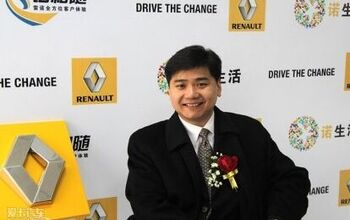Renault Ends Chinese Partnership, Looks for a New Start

With the rippling economic effects of the coronavirus outbreak starting to take hold, some industry analysts have begun floating the increasingly popular theory that various markets could stage a retreat from China. While the Chinese Communist Party’s mishandling of the pandemic — including cover-ups (and the possible manipulation of the World Health Organization) that ultimately encouraged the virus’ spread — are often cited as the impetus for the change, the actual decisions will be largely economic. COVID-19 threatens countless nations’ financial welfare as it simultaneously disrupts global supply chains.
The virus has also sent the auto industry into a holding pattern as manufacturers and suppliers hemorrhage money. While the assumption exists that this situation could encourage international automakers to refocus on domestic production, there haven’t been many examples to point to. Renault changed that this week, announcing plans to abandon its joint venture with China’s Dongfeng Motor Corporation. The move, however, may have less to do with the presumed industrial exodus than the company’s general financial situation.
Renault handed alliance partner Nissan the lead in China, allowing the French automaker to play a lesser role in the market. However, that still included a prolonged commitment to state-owned Dongfeng Motor Corp — a prerequisite for doing business within the country. All foreign entities are subject to entering into joint ventures if they’re to manufacturer and sell product within China, though its government has made a handful of exceptions in the past.
Despite getting off to a promising start in a period where China seemed to have unlimited growth potential, the market peaked by 2017. In 2020, it began recoiling aggressively as the coronavirus shut down the nation’s manufacturing capabilities. China looked to be on the cusp of a recession months before COVID-19 became a factor; consumers were losing buying power and new emission rules complicated the type of cars citizens could buy. Renault has a JV facility in Wuhan, where the virus originated, that builds passenger vehicles for the domestic market. That site had to be idled as the health crisis evolved, creating new headaches for the brand.
The manufacturer has also been well off its sales targets for the region. Back in 2014, Renault was aiming for 700,000 annual sales in China, with former Renault-Nissan Alliance head Carlos Ghosn saying the number could actually be as high as 800,000. Instead, the manufacturer didn’t even break 200,000 Chinese deliveries in 2019, losing a sizable share of the market in the process. Nissan held strong with over 1.5 million sales.
With both companies focused on their bottom line (each issued profit warnings in 2019), it makes sense to let Nissan carry the torch while Renault retreats from the market. According to the French automaker, splitting from Dongfeng is part of “global realignment” that includes alliance partners Nissan and Mitsubishi. The official plan won’t be released until next month, though Renault said its changing role in China is definitely part of the overall strategy.
“Groupe Renault unveiled today its new strategy for the Chinese Market, building on two of its key pillars,” it explained in a release. “Electric Vehicles (EV) and Light Commercial Vehicles (LCV).”
Renault plans to continue providing aftersales services for 300,000 customers through established Renault dealers and via its alliance with Nissan. Meanwhile, Dongfeng will have to buddy up with Nissan for its supply of engine components as Renault helps with mobility projects and EVs. All shares in the joint venture will be transferred back to Dongfeng.
[Image: TY Lim/Shutterstock]

A staunch consumer advocate tracking industry trends and regulation. Before joining TTAC, Matt spent a decade working for marketing and research firms based in NYC. Clients included several of the world’s largest automakers, global tire brands, and aftermarket part suppliers. Dissatisfied with the corporate world and resentful of having to wear suits everyday, he pivoted to writing about cars. Since then, that man has become an ardent supporter of the right-to-repair movement, been interviewed on the auto industry by national radio broadcasts, driven more rental cars than anyone ever should, participated in amateur rallying events, and received the requisite minimum training as sanctioned by the SCCA. Handy with a wrench, Matt grew up surrounded by Detroit auto workers and managed to get a pizza delivery job before he was legally eligible. He later found himself driving box trucks through Manhattan, guaranteeing future sympathy for actual truckers. He continues to conduct research pertaining to the automotive sector as an independent contractor and has since moved back to his native Michigan, closer to where the cars are born. A contrarian, Matt claims to prefer understeer — stating that front and all-wheel drive vehicles cater best to his driving style.
More by Matt Posky
Latest Car Reviews
Read moreLatest Product Reviews
Read moreRecent Comments
- MaintenanceCosts Whenever the topic of the xB comes up…Me: "The style is fun. The combination of the box shape and the aggressive detailing is very JDM."Wife: "Those are ghetto."Me: "They're smaller than a Corolla outside and have the space of a RAV4 inside."Wife: "Those are ghetto."Me: "They're kind of fun to drive with a stick."Wife: "Those are ghetto."It's one of a few cars (including its fellow box, the Ford Flex) on which we will just never see eye to eye.
- Oberkanone The alternative is a more expensive SUV. Yes, it will be missed.
- Ajla I did like this one.
- Zerofoo No, I won't miss this Chevrolet Malibu. It's a completely forgettable car. Who in their right mind would choose this over a V8 powered charger at the rental counter? Even the V6 charger is a far better drive.
- Offbeat Oddity Nope, I won't miss it. I loved the 2008-2012 Malibu, but the subsequent generations couldn't hold a candle to it. I think the Impala was much more compelling at the end.


































Comments
Join the conversation
A big problem for all companies with joint ventures in China is that they can't just pick up and leave. They may THINK they own the equipment in Chinese plants, but some companies have found that they can't ship the equipment out of the country. They've been prevented from doing so by the Chinese government, claiming the Chinese company in the joint venture owns it. Just moving their operations out of China is going to be a real problem for companies, even with countries like Japan actually financing the exodus back to Japan or to other southeast-asian countries. China is not going to treat that exodus lightly, especially for industries with major capital investment in equipment, like the auto industry.
Thank you Renault. Thank you.